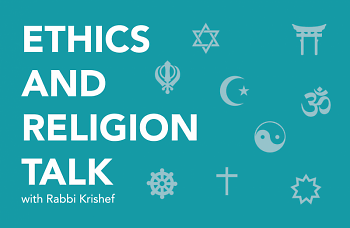Linda Knieriemen, a retired pastor of the Presbyterian Church (USA), responds:
Christianity is not a monolith! In terms of how faith is lived, there is as much variation within the body of those who identify as Christian as there is between world faiths! Evangelical or conservative Christianity have the loudest, but not the only Christian voice in American society. I am frustrated by Christian expression which is anti-abortion but not anti-death penalty. Pro-life Christians seem to ignore that gun control and social service programs to support children are pro-life I am frustrated by Christian expression which continue to support politicians who lie, commit fraud and are misogynists. I am frustrated by Christian expression which excludes entire groups of people based on who they love. The witness of the gospel writers is that Jesus was a radical prophet, who invited everyone and anyone into his community and he criticized unjust rulers and the religious establishment.
There is a Gandhi quote widely circulated (which he may or may not have actually said), which should put all Christians on alert. Gandhi, who was challenged and inspired by the words of Jesus, saw as hypocritical Christian segregation practices said, “I would be a Christian if it weren’t for the Christians.” Highlighting his impression, some progressive Christians today eschew the label Christian altogether and choose instead to say that they are “imperfect followers of Jesus” to separate their understanding of Jesus and their religious practice from the prevailing Christian voices.
The Reverend Colleen Squires, minister at All Souls Community Church of West Michigan, a Unitarian Universalist Congregation, responds:
In the last few years, we have begun to shift how we operate as a religious denomination. We are clear that we are a predominantly white church and that we have practices that perpetuate a white supremacy culture. We are currently and intentionally working to make changes to create more inclusive congregations and overall faith. More than half of our members are embracing these changes as the best way to live our values and to create the inclusive communities we have always hoped for. I would like to speak to those who are in opposition to these changes. They are generally older, white, and affluent. They are used to having all the power and having things go their way. I believe their behavior does not represent our Unitarian Universalist values.
Fred Stella, the Pracharak (Outreach Minister) for the West Michigan Hindu Temple, responds:
There are a few things. Up front, I’d say that way too many Hindu Indians who have migrated to the US just assumed that their children would adopt a Hindu identity just because most kids in India who are Hindu grow up to maintain their religion. But this is not the case here. Young adults are challenged on many fronts (missionaries, academia, media, friends) to hold onto Hindu values and practices. But much of religious education involves things like rote learning of prayers, which is valuable to a degree. But many cannot explain their religion the way so many Christian kids can.
One other thing is that many Hindus (certainly not all!) pray in a rather transactional way. “I’ll conduct this ceremony if I can get God to manipulate the universe to get me what I want.” The Bhagavad Gita is very clear that this is a primitive expression of religion. Yet, I still see it happening in certain circles.
Rev. Laurie Crelly, Senior Pastor at East Congregational Church UCC, responds:
Two terms that are important in the United Church of Christ are autonomy and covenant. These are held in tension to the other but many churches seem to prefer the autonomous aspect of our UCC identity rather than our covenantal ties. I would want to see more of our churches be more serious about our covenantal ties and learn more about our history to see our progressive, social justice approach to the work of the church is deeply embedded in our history. This is a covenantal commitment to seek, heal and change the world for Christ.
My response:
I don’t expect that all Jews will agree on everything. But I would hope that the Jewish community could find ways to pull together and compromise enough to all support a Jewish state built on the historic land of the people of Israel. I am frustrated that a tiny segment of the Jewish community, consisting of both religious and non-religious Jews, does not believe that such a state should exist; and another segment of the Jewish community appears to supports Israel, while internally questions the legitimacy of a state which is largely a secular democracy.
This column answers questions of Ethics and Religion by submitting them to a multi-faith panel of spiritual leaders in the Grand Rapids area. We’d love to hear about the ordinary ethical questions that come up in the course of your day as well as any questions of religion that you’ve wondered about. Tell us how you resolved an ethical dilemma and see how members of the Ethics and Religion Talk panel would have handled the same situation. Please send your questions to [email protected].
The Rapidian, a program of the 501(c)3 nonprofit Community Media Center, relies on the community’s support to help cover the cost of training reporters and publishing content.
We need your help.
If each of our readers and content creators who values this community platform help support its creation and maintenance, The Rapidian can continue to educate and facilitate a conversation around issues for years to come.
Please support The Rapidian and make a contribution today.
